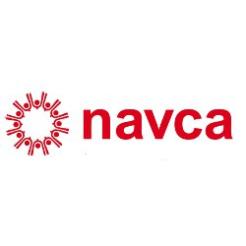Navca has warned that charities creating an investment platform where investors in the charity are expecting a return, could be pressured into maximising profits for investors, rather than furthering the interests of the charity.
The umbrella body issued the warning as part of its recommendations to Lord Hodgson who is overseeing the review of the Charities Act 2006, and in reference to the Charity Commission's latest investment guidance which encourages mixed-motive investments.
Welcoming the guidance in general, Navca said it is "much more cautious about investments where the charity is the recipient and the investor is expecting a profit from the investment".
"There would be a real risk that charities would be pressured into maximising the return for investors rather than furthering the interests of charities," wrote Peter Horner, Navca policy officer and author of the recommendations.
Further, he advised that: "Such arrangements would need to be carefully managed, as there is a risk that they would undermine people's confidence in charities and make charities targets from unscrupulous investors."
The warning was just one of 11 recommendations by the membership body, which answered questions asked by Lord Hodgson's consultation, due to close for responses on Monday.
Income thresholds
Navca used the opportunity to raise an issue that was not covered by the consultation - that of charities that have incomes above the threshold for registration with the Charity Commission, but have not yet registered.
Horner said: "It is difficult to ascertain the size of this group and because identifying this group would add to the number of charities that need to be regulated, there may not be an incentive to try to identify them and persuade them to register."
But, he said, "it could still be the case that many of these are unaware of the need to register or that they are still subject to charity law, whether or not they are registered. Navca would advocate some research into the size of this issue and appropriate solutions".
He also said that those charities that are below the threshold should not be prevented from joining the register of charities, held and regulated by the Charity Commission.
Under current rules, charities with an income under £5,000 per year are not permitted to register with the Charity Commission and Lord Hodgson's review is looking at whether this threshold should be raised further.
Horner advised however that such organisations experience difficulties in increasing their income due to the lack of a registration number:
"Individuals, when approached for donations, ask for a charity number as proof that an organisation is a charity," he said.
"The majority of the general public will not be aware of the various complexities such as thresholds, excepted charities and exempted charities. For them the charity number is what they look for. In fact for clothing collections this is the identifier that has been promoted publicly."
He also said that organisations without a charity number may not be able to use certain online fundraising sites or access corporate funding.
"Raising thresholds would increase the numbers that this would apply to," he warned.
Following the call for evidence which closes on Monday, all responses to the Charities Act 2006 review will be assessed and a report is expected to be complete and put before Parliament before the summer recess in mid-July.










